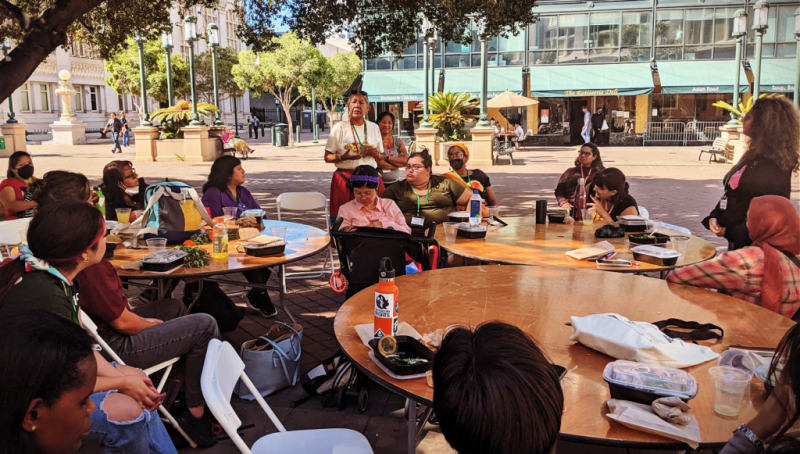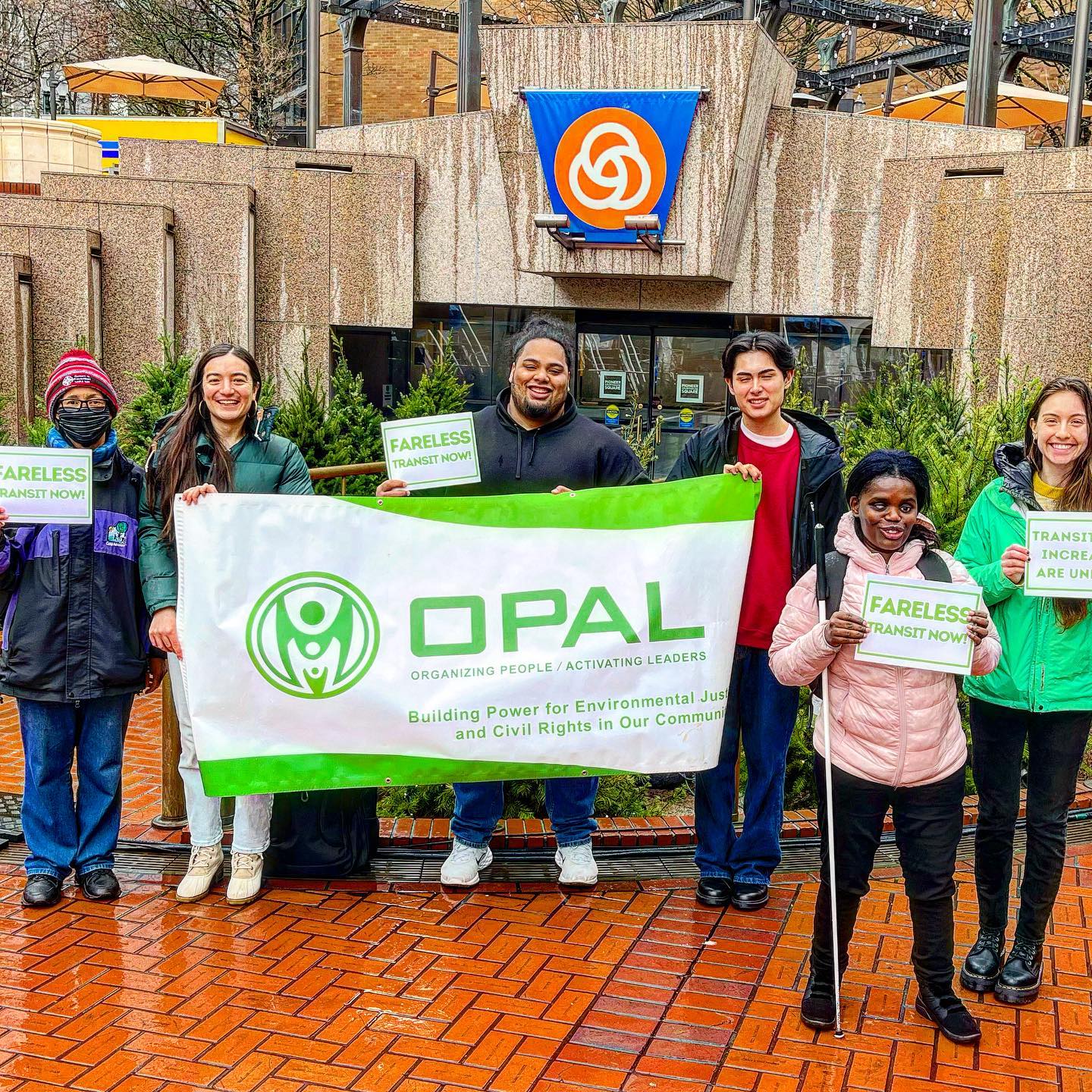
OPAL (Organizing People, Activating Leaders) Environmental Justice Oregon empowers low-income BIPOC communities in Portland, OR to fight for equal access to clean air, safe housing, affordable transportation, and a voice in shaping their environment. Founded in 2005, OPAL prioritizes frontline leadership, putting the power and decision-making into the hands of the most impacted communities. Early OPAL organizers worked with the Multnomah County Health Department on environmental health concerns facing public housing residents in North Portland. When many expressed concerns related to transit access, OPAL pivoted toward transportation justice, founding Bus Riders Unite (BRU) in 2011, bringing fare reductions for low-income riders and increased safety on bus and trail lines. In 2015, OPAL’s Youth Environmental Justice Alliance (YEJA) launched, with teens leading the fight for transportation justice for East Portland schools that faced disproportionate access to free transit services.

“OPAL, BRU, and community organizers hold up the OPAL Banner outside the Trimet office at Pioneer Courthouse Square. Some are holding signs calling for Fareless Transit and to stop the fare increase proposal!”
— Pioneer Courthouse Square. (Facebook: Feb. 12, 2023)
Initially focused on indoor and outdoor air quality and asthma concerns in communities along the I-205 freeway corridor, OPAL now works at the intersections of transportation, housing, land use, public health, and climate policy. Community members form the staff, leadership, and board of directors – collaborating on a just transition in Oregon’s economy from an extractive and exploitative, destructive cycle to a feminist economy rooted in regeneration and cooperation. OPAL members have gone on to start the Asian Pacific American Network of Oregon, Momentum Alliance, and Groundwork Portland, and engage in countless other movement and base-building spaces around the globe. Headquartered in East Portland, they continue the fight for transportation justice there. In Oregon’s Capitol of Salem, they tackle statewide air quality, energy, and housing policy. And nationally, they advocate for climate justice alongside partners such as Anthropocene Alliance, Climate Justice Alliance, and Grassroots Global Justice.